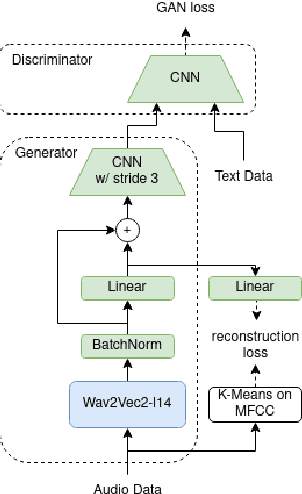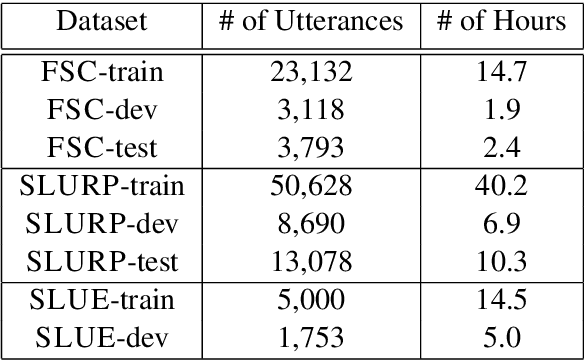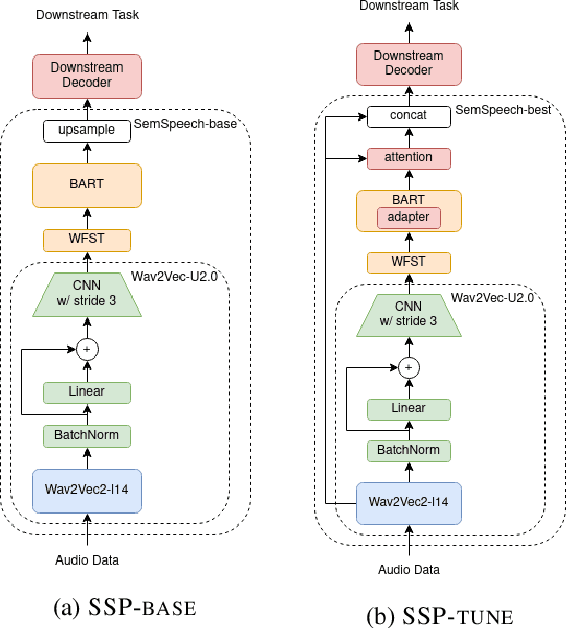Introducing Semantics into Speech Encoders
Paper and Code
Nov 15, 2022



Recent studies find existing self-supervised speech encoders contain primarily acoustic rather than semantic information. As a result, pipelined supervised automatic speech recognition (ASR) to large language model (LLM) systems achieve state-of-the-art results on semantic spoken language tasks by utilizing rich semantic representations from the LLM. These systems come at the cost of labeled audio transcriptions, which is expensive and time-consuming to obtain. We propose a task-agnostic unsupervised way of incorporating semantic information from LLMs into self-supervised speech encoders without labeled audio transcriptions. By introducing semantics, we improve existing speech encoder spoken language understanding performance by over 10\% on intent classification, with modest gains in named entity resolution and slot filling, and spoken question answering FF1 score by over 2\%. Our unsupervised approach achieves similar performance as supervised methods trained on over 100 hours of labeled audio transcripts, demonstrating the feasibility of unsupervised semantic augmentations to existing speech encoders.
 Add to Chrome
Add to Chrome Add to Firefox
Add to Firefox Add to Edge
Add to Edge